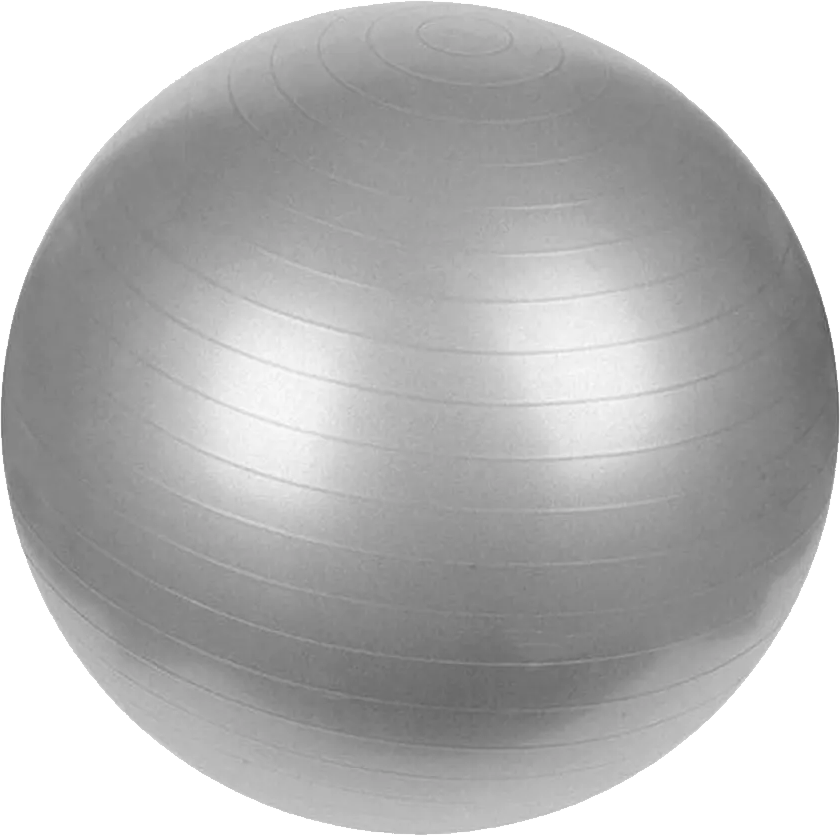
This image has format transparent PNG with resolution 840x836.
You can download this image in best resolution from this page and use it for design and web design.
Exercise ball PNG grey image with transparent background you can download for free, just click on download button.
An exercise ball is a ball constructed of soft elastic, typically in 5 diameters of 10-centimeter increments, from 35 centimeters (14 inches) to 85 centimeters (34 inches), and filled with air. The air pressure is changed by removing a valve stem and either filling with air or letting the ball deflate. It is most often used in physical therapy, athletic training and exercise. It can also be used for weight training.
The ball is also known by various other names, for instance: balance ball, birth ball, body ball, fitness ball, gym ball, gymnastic ball, physio ball, pilates ball, Pezzi ball, stability ball, Swedish ball, Swiss ball, therapy ball, or yoga ball.
The physical object known as a "Swiss Ball" was developed in 1963 by Aquilino Cosani, an Italian plastics manufacturer. He developed a process for moulding large puncture-resistant plastic balls. According to American physical therapist Joanne Posner-Mayer, the use of the exercise ball as a therapy tool probably begins with the Swiss pediatrician Dr. Elsbeth Köngan, an early advocate of the Bobath concept. Those balls, then known as "Pezzi balls", were first used in treatment programs for newborns and infants by Mary Quinton, a British physiotherapist working in Switzerland.
Later, Dr. Susanne Klein-Vogelbach, the director at the Physical Therapy School in Basel, Switzerland, integrated the use of ball exercise as physical therapy for neuro-developmental treatment. In 1985, she published a famous book “Ballgymnastik zur funktionellen Bewegungslehre” (“Ball gymnastics for functional movement theory”), where she described several exercises with the ball. Klein-Vogelbach advocated the use of ball techniques to treat adults with orthopedic or medical problems.
In 1995, Joanne Posner-Mayer published a book "Swiss Ball Applications for Orthopedic and Sports Medicine" in the US. As American physical therapists began to use ball exercises, the term became common in the US. From their development as physical therapy in a clinical setting, those exercises are now used in athletic training, as part of a general fitness routine and incorporation in alternative exercises such as yoga and Pilates.
In 2012, Neil Whyte completed the record for the fastest time 10 Swiss balls have been jumped across at 8.31 seconds. The record for the farthest jump between two Swiss balls was also made by Neil at a distance of 2.3 meters in 2012.
In this page you can download free PNG images: Exercise ball PNG images free download, gym ball PNG